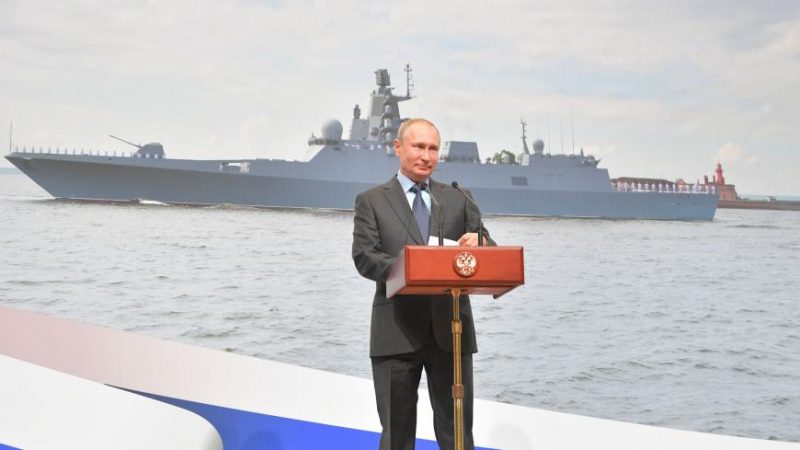Russia’s plan to establish a naval base in Sudan, which would have given it access to the strategic Red Sea and the Indian Ocean, has been put on hold indefinitely due to the ongoing political instability in the African country.
The agreement to create the naval facility was signed in 2019 by former Sudanese President Omar al-Bashir and Russian President Vladimir Putin, as part of a broader military cooperation deal that included arms sales and training. The base, which would have hosted up to 300 Russian personnel and four warships, was intended to serve as a logistics hub for the Russian Navy, allowing it to operate large vessels and nuclear submarines in the region.
However, the deal faced several obstacles and delays, as Sudan underwent a series of political upheavals that hampered its ratification. In 2019, al-Bashir was ousted by a military coup, which was followed by a power-sharing agreement between the military and civilian leaders. In 2021, Sudan’s Deputy Foreign Minister Mohamed Sharif Abdallah announced that the naval base agreement was not compatible with Sudan’s national interests and sovereignty, and that it would not be ratified by the transitional government.
In 2023, the situation worsened, as Sudan witnessed another attempted coup, which sparked violent clashes between pro-government forces and rebels from the Rapid Support Forces (RSF), a paramilitary group that has been accused of human rights violations and war crimes. The RSF, which is led by General Mohamed Hamdan Dagalo, also known as Hemeti, has been reportedly supported by the Russian Wagner Group, a private military company that has been involved in several conflicts in Africa and the Middle East, allegedly on behalf of the Kremlin.
The naval base agreement, which was supposed to last for 25 years, has been effectively frozen by the political crisis, as Sudan’s ambassador to Russia, Andrei Chernovol, confirmed in February 2024. He said that the agreement could not be implemented until Sudan’s political situation stabilizes and a new constitution is adopted.
The failure to establish the naval base in Sudan is a setback for Russia’s ambitions to expand its presence and influence in Africa, where it has been competing with other global powers, such as the US, China, and France, for access to natural resources, markets, and strategic locations. The naval base would have also enabled Russia to project its power in the Red Sea, which is a vital maritime route for global trade, and in the Indian Ocean, where it could challenge the US and its allies.
Russia has not given up on its naval aspirations in Africa, however, and has been exploring other options, such as Somalia, Eritrea, and Djibouti, where it could potentially establish a foothold. However, these countries also pose significant challenges and risks, such as piracy, terrorism, and regional rivalries, that could complicate Russia’s plans.
